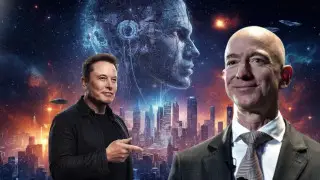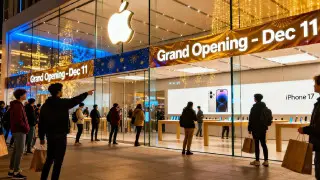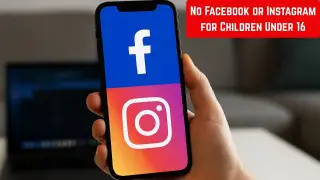
X
Tesla CEO Elon Musk grabbed attention at a startup and tech event in Paris with his bold prediction: artificial intelligence (AI) will eventually eliminate all jobs. In a surprising twist, Musk proposed that this might not necessarily be a negative development.
During his remote appearance via webcam at the Viva Tech event, Musk envisioned a future where employment becomes optional. He suggested that AI robots would handle the majority of tasks, allowing individuals to pursue jobs as hobbies if they desired.
Musk painted a positive picture of the future, predicting universal high income alongside AI dominance. However, he acknowledged the challenge of finding purpose in a world where AI manages most tasks. He clarified that this scenario should not be confused with universal basic income (UBI), though he provided minimal details on the concept.
While Musk expressed optimism about AI's potential, he also voiced concerns about its rapid advancement. Referring to AI as his "biggest fear," he drew parallels to the 'Culture Book Series' by Ian Banks, portraying a society governed by advanced technology.
Musk delved into advancements in Neuralink, urging parents to regulate their children's social media usage due to AI algorithms optimizing for dopamine. He showcased a video demonstrating a patient controlling a cursor with their thoughts, highlighting the potential of implantable devices to address brain and spine injuries.
In addition to AI and Neuralink, Musk shared his long-term vision for SpaceX, aiming to establish human colonies on other planets. He emphasized Starlink, his satellite internet venture, as a crucial step towards this goal, enabling global connectivity even in remote areas.
Musk stressed the importance of AI being truth-seeking and curious to benefit humanity. He expressed concerns about AI programs prioritizing political correctness over truth, advocating for honesty and transparency in AI development. He questioned whether individuals would find fulfillment in a jobless future and pondered the role of humans in giving AI meaning.













Copyright © 2025 Top Indian News
